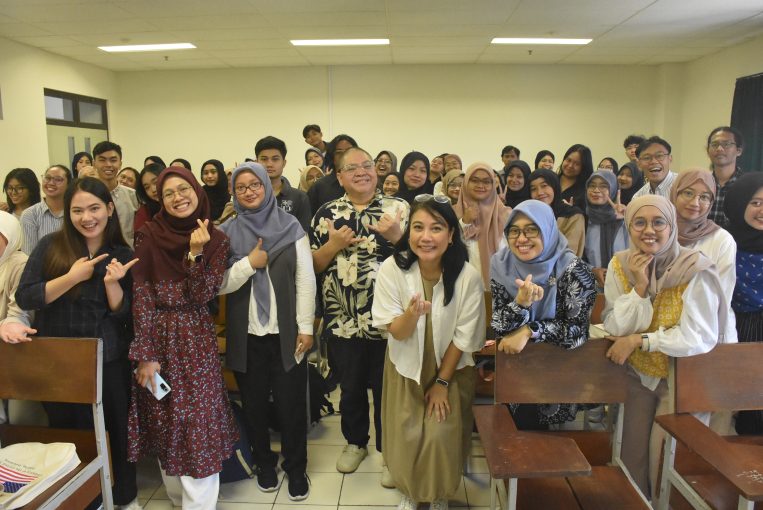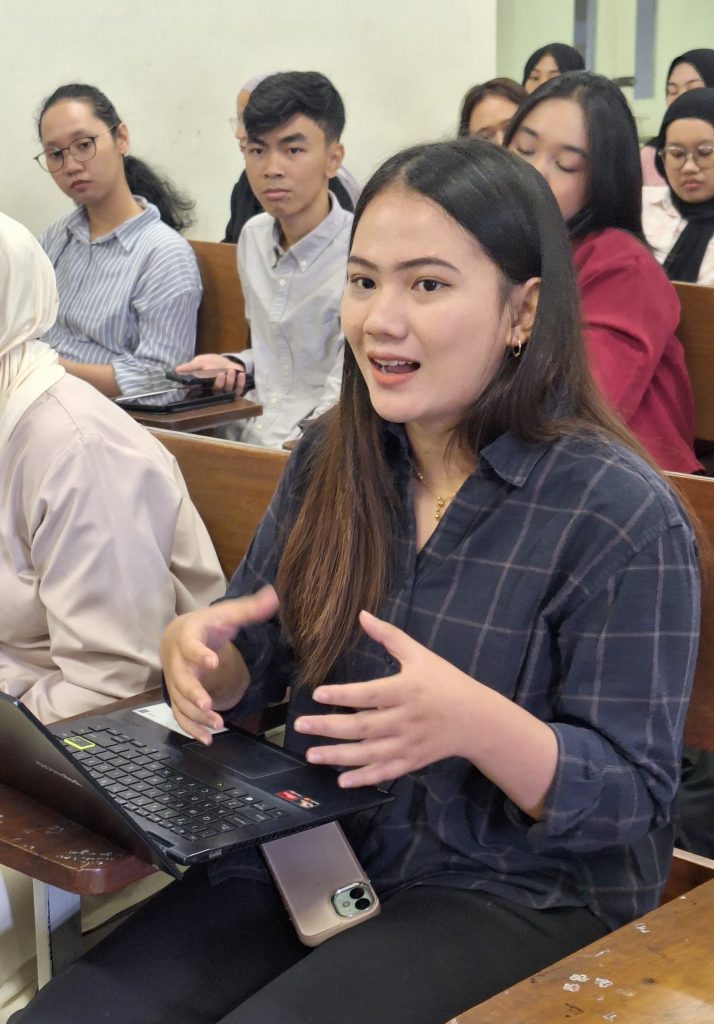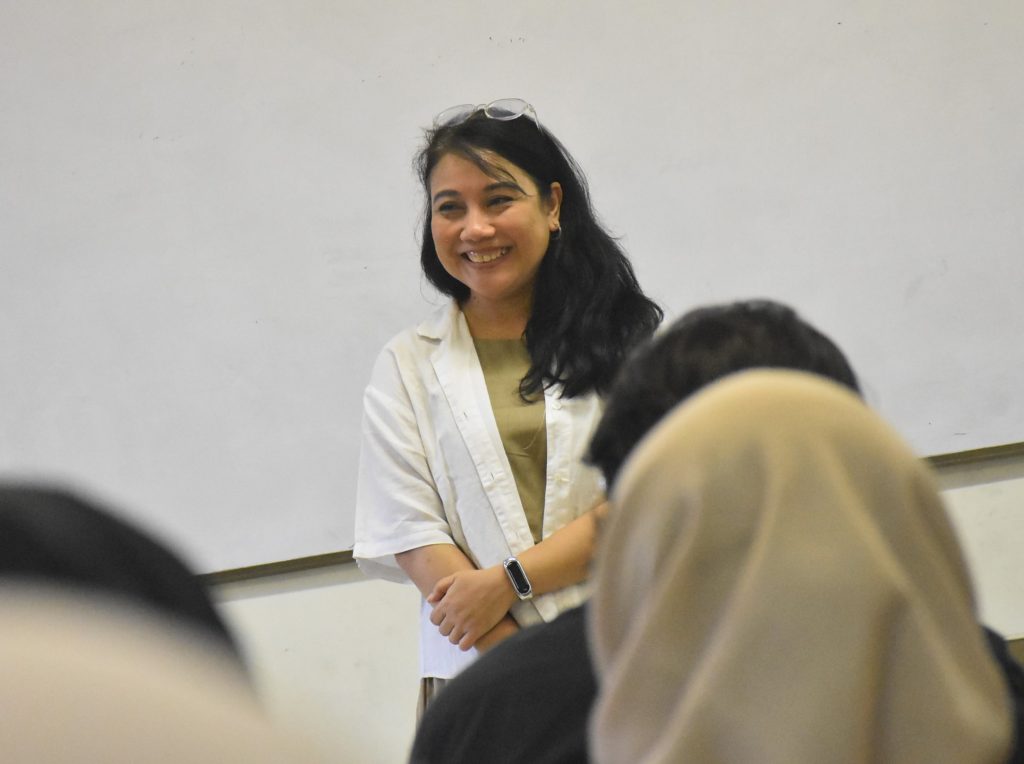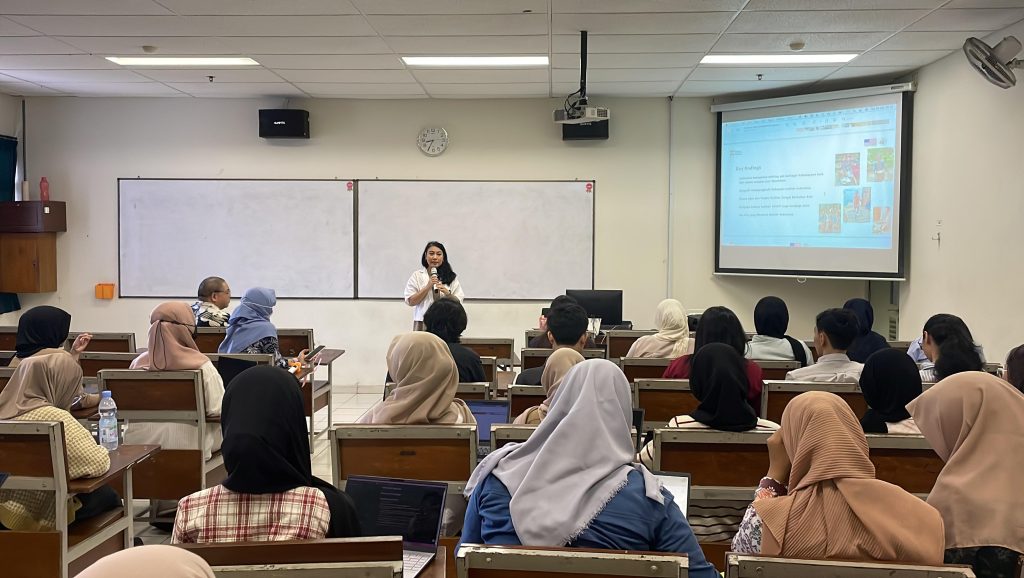
The wealth and diversity of Indonesia’s culinary culture are essential aspects of the country’s identity. However, this rich heritage faces threats as many traditional recipes remain undocumented, while younger generations are less inclined to learn cooking skills from their mothers and grandmothers.
The difficulty of finding traditional recipes and food culture records passed down orally from generation to generation arises from a lack of recipe documentation practices. Efforts to preserve Indonesia’s original recipes and food culture are crucial to maintaining cultural heritage and as a step toward resilience in all aspects, especially food security.
Meilati Batubara and her team are committed to documenting Indonesia’s history and culinary culture through a project titled “Pusaka Rasa Nusantara” (The Heritage of Indonesian Flavors). She shared the journey of her research with TPHP UGM students in the “Indonesian Gastronomy” course held on Tuesday (29/10).


In her presentation, Meilati detailed the research process, which began with desk research. She collected as much information as possible on regional foods from books and the Internet before conducting field research in various regions.
 Her research produced five main findings regarding Indonesia’s culinary heritage. First, Indonesia is a melting pot of various cultures from within and beyond the archipelago, with each ethnic group, cultural tradition, and traditional cooking tool adding unique characteristics. Second, Indonesia’s geographical features, including the Wallace Line, lead to culinary differences between Western and Eastern Indonesia, influenced by spice trade routes. Third, the variety of customary rituals and culinary traditions enriches Indonesia’s culinary diversity. Fourth, differences in religion and communal dining traditions add further richness. Fifth, the sustainability of traditional cuisine depends heavily on nature, with preserving recipes meaning preserving the environment. Meilati emphasized the importance of cultural ceremonies, traditions, and the role of traditional cooks as custodians of recipes that uphold Indonesia’s culinary heritage. Her entire research journey is documented in four books within the series Warisan Budaya Kuliner Nusantara, including Sejarah dan Budaya Kuliner Indonesia, Keanekaragaman Bahan Pangan Indonesia, Teknik Masak Nusantara, and Resep Masakan Tradisional Indonesia.
Her research produced five main findings regarding Indonesia’s culinary heritage. First, Indonesia is a melting pot of various cultures from within and beyond the archipelago, with each ethnic group, cultural tradition, and traditional cooking tool adding unique characteristics. Second, Indonesia’s geographical features, including the Wallace Line, lead to culinary differences between Western and Eastern Indonesia, influenced by spice trade routes. Third, the variety of customary rituals and culinary traditions enriches Indonesia’s culinary diversity. Fourth, differences in religion and communal dining traditions add further richness. Fifth, the sustainability of traditional cuisine depends heavily on nature, with preserving recipes meaning preserving the environment. Meilati emphasized the importance of cultural ceremonies, traditions, and the role of traditional cooks as custodians of recipes that uphold Indonesia’s culinary heritage. Her entire research journey is documented in four books within the series Warisan Budaya Kuliner Nusantara, including Sejarah dan Budaya Kuliner Indonesia, Keanekaragaman Bahan Pangan Indonesia, Teknik Masak Nusantara, and Resep Masakan Tradisional Indonesia.
Through this guest lecture, it is hoped that students will better understand the importance of culinary documentation as a means of cultural preservation while fostering an appreciation for the diversity of Indonesian cuisine. This guest lecture aligns with several Sustainable Development Goals, including preserving cultural heritage (SDG 11), quality education (SDG 4), and supporting food security (SDG 2) as part of sustainable resource management (SDG 12).
Author: Firstnandita Keisha
